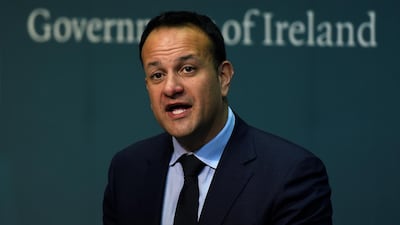Ireland’s government attacked a UK plan to exempt British soldiers and paramilitaries from prosecution for their actions during decades of violence in Northern Ireland.
“We are very alarmed and deeply disturbed at reports that the British government is even considering acting unilaterally to give immunity to people who committed the worst imaginable offences during the Troubles,” Irish Deputy Prime Minister Leo Varadkar told RTE Radio.
“It couldn’t possibly be even considered” without consent from Northern Ireland’s political parties, Mr Varadkar said.
“This doesn’t just apply to victims of violence at the hands of British forces, it also applies to people who are victims of violence at the hands of republicans and also loyalists,” he said.
Reports suggest the UK government plans to set a statute of limitations on any crimes committed prior to the 1998 peace agreement, which ended the period of violence known as the Troubles in Northern Ireland.
There has been rising tension in the region as a result of the Brexit trade agreement between the UK and EU.
Northern Ireland last month experienced the worst violence in years as mainly pro-British youths rioted.
Dealing with people accused of atrocities in Northern Ireland has long been a controversial issue.
An agreement between the UK and Irish governments, along with most political parties in Northern Ireland, in 2014 included provision to investigate outstanding crimes associated with the Troubles.
The relationship between the UK and Irish governments is “rocky", Mr Varadkar said.
“It’s not as nice as it might have been in the past” but it is still functional, he said.
More on Northern Ireland
UK veterans call for stop to ‘witch hunt’ prosecution of ex-soldiers in Northern Ireland
Northern Ireland marks its 100th anniversary
Northern Ireland First Minister Foster to step down after party revolt


